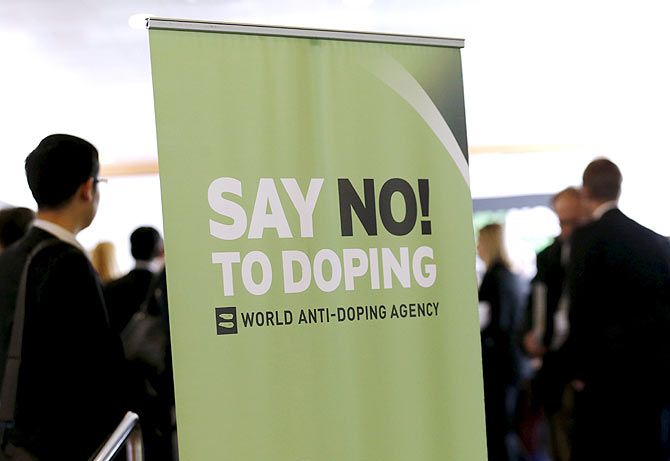IOC says no sign of significant abuse in clenbuterol cases from Beijing
 The IOC said it had not detected any significant abuse of clenbuterol after finding "very low levels" of the banned substance during re-testing of samples from the Beijing Olympics.
The IOC said it had not detected any significant abuse of clenbuterol after finding "very low levels" of the banned substance during re-testing of samples from the Beijing Olympics.
The International Olympic Commmittee's comments on Monday came one day after German broadcaster ARD reported that traces of the banned substance were found in samples provided by members of the Jamaican sprint team at the games in 2008.
Jamaica won 10 medals in the sprint events led by Usain Bolt, who took gold in the men's 100 and 200 metres.
In a statement, the IOC said that "very low levels of clenbuterol" were found in the cases of athletes from a number of countries and different sports. It said the athletes were innocent and could not give any more details.
Without mentioning Jamaica or the ARD allegations, the IOC said that all values were "in the range of potential meat contamination cases".
It said it "carefully deliberated" whether or not to proceed with the cases and consulted the World Anti-Doping Agency (WADA).
According to the IOC, WADA said that it could not find "any significant and consistent pattern of abuse of clenbuterol in these cases and that it would be appropriate not to take these cases any further".
The IOC stores samples for a decade to test with newer methods or for new substances. It ordered re-tests of samples from Beijing in the run-up to last year's Rio Olympics to try and root out drug cheats.
Clenbuterol is a performance-enhancing substance that is sometimes found in weight-loss pills and is on the World Anti-Doping Agency (WADA) banned list.
In 2011, more than 100 players tested positive for clenbuterol during the under-17 soccer world championship held in Mexico. They were also acquitted of any wrongdoing after FIFA, soccer's governing body, said they were victims of a health problem in the country.
However, double Tour de France champion Alberto Contador of Spain was handed a two-year ban for testing positive for clenbuterol during the 2010 race, despite maintaining that he had eaten contaminated meat.
Jamaica were stripped of an eleventh Beijing sprinting medal, the 4 X 100 metres gold, in January when Nesta Carter was found in re-tests of his sample to have taken the banned stimulant methylhexaneamine.
The whole team lost their medals as a result, including Bolt.








 © 2025
© 2025